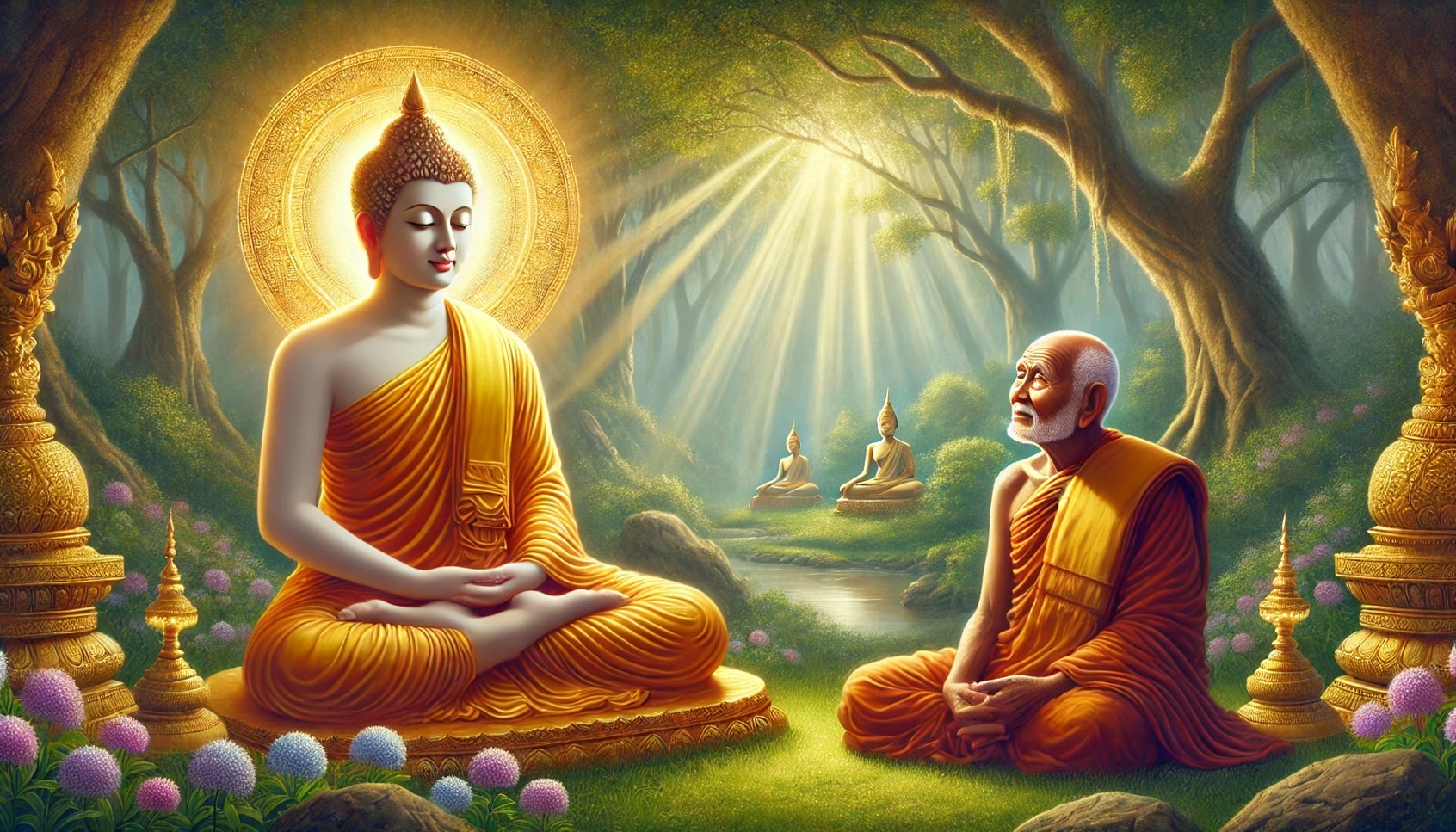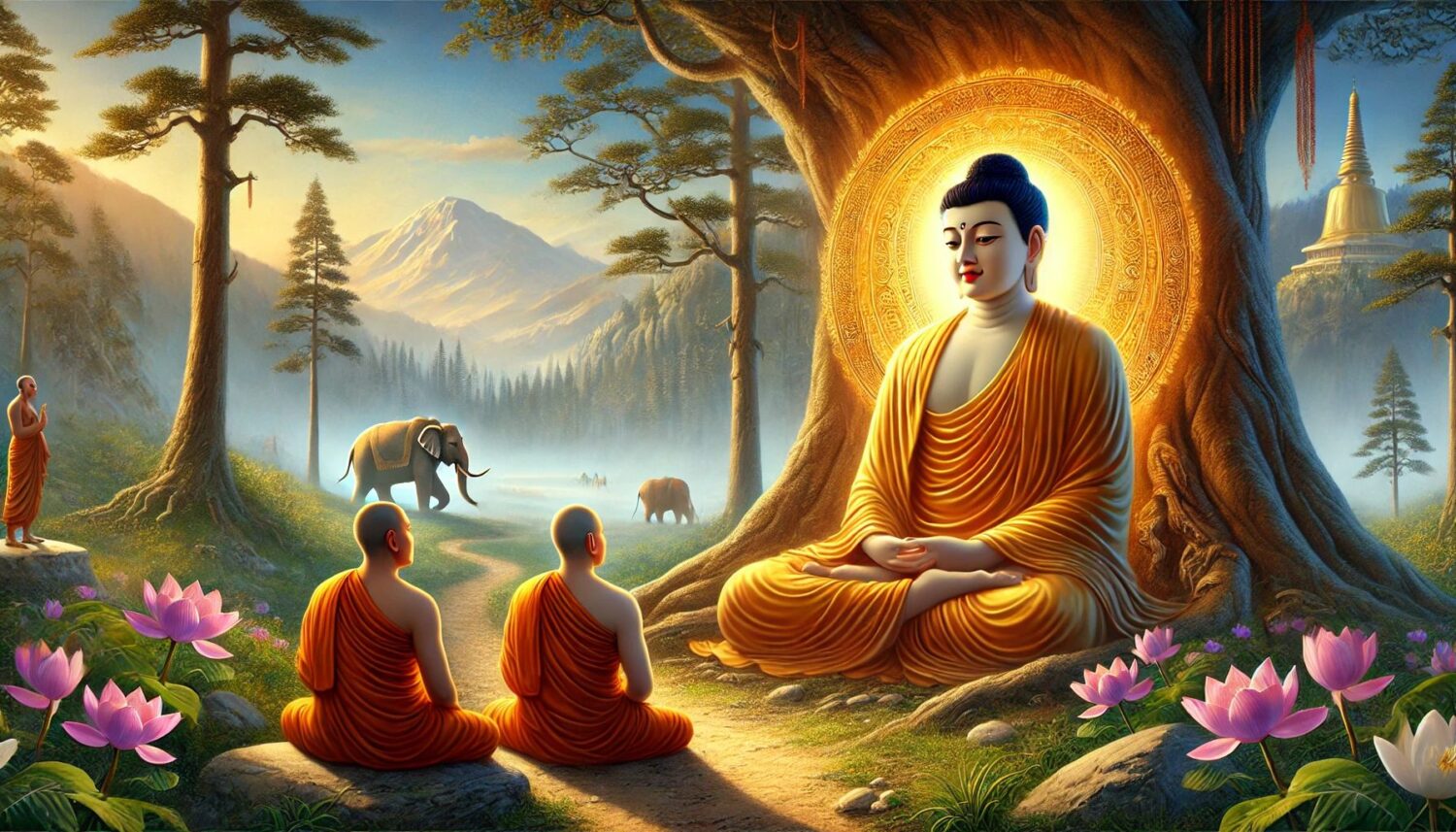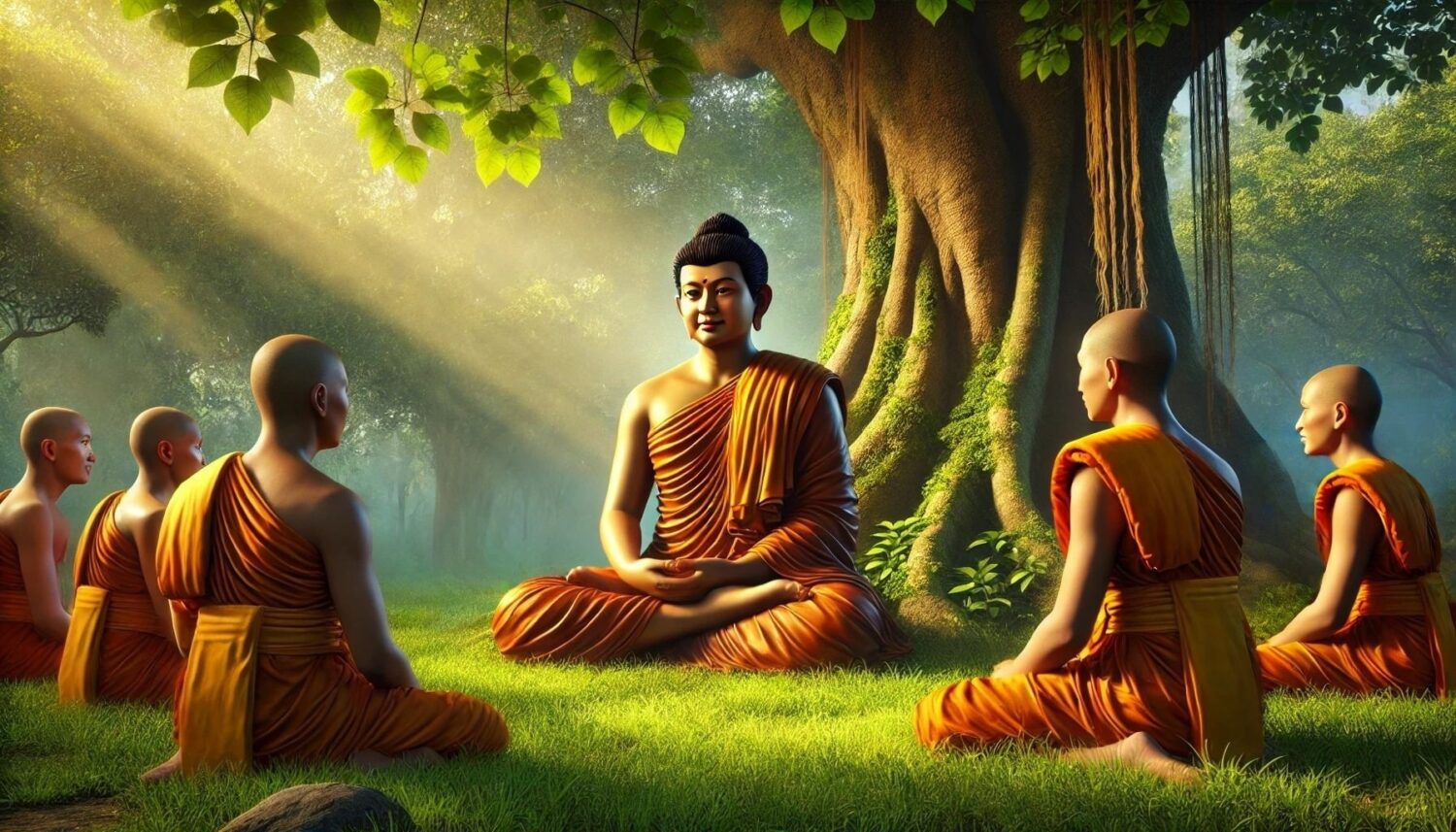
Date: 04/20/2024 04/21/2024
Location: Star Lake Meditation Center
Teacher: Otto Huang
Dharma Talk
Where There Is Love, There Is Pain
Once, the Buddha was wandering in the capital of the Kosala kingdom, Shravasti, and stayed in the Jeta Grove, in the park of Anathapindika.
At that time, there was a Brahmin lay follower in Shravasti whose beloved only son had died, causing him immense grief. He abandoned his work, lost interest in eating and drinking, and often wept at his son’s grave, nearly breaking down.
One day, as the Brahmin lay follower wandered aimlessly, he came to the Jeta Grove and went in to see the Buddha.
Noticing his distraught appearance, the Buddha inquired about the cause.
The Brahmin lay follower shared his sorrow over losing his son with the Buddha.
The Buddha responded:
”Indeed, lay follower, where there is love, there follows worry, grief, annoyance, suffering, sorrow, and weeping.”
”But Gautama, how can you say that? Gautama, you should know that where there is love, there is joy!”
The Brahmin lay follower repeatedly disagreed, and then left dissatisfied.
After leaving the Jeta Grove, the Brahmin saw a group of people gambling by the road and thought: Gamblers are often clever, let me ask them for their opinion.
The gamblers all agreed with the Brahmin, believing that love brings joy. Satisfied with their response, the Brahmin nodded and left.
This incident spread among the common folk and even reached King Pasenadi of Kosala.
King Pasenadi questioned the Buddha’s teachings and consulted Queen Mallika.
Queen Mallika, a devout follower of the Buddha and well-versed in his teachings, confirmed:
”Yes, my lord! Indeed, where there is love, there follows worry, grief, annoyance, suffering, sorrow, and weeping.”
”Mallika, you just echo what you hear about your teacher. Since the ascetic Gautama is your teacher, you simply agree with him.”
”My lord, if you don’t believe it, you can ask the Blessed One yourself or send someone.”
So, King Pasenadi sent a Brahmin named Narayana to inquire with the Buddha.
The Buddha explained to Narayana:
”Narayana, let me ask you, if someone loses their mother, father, brother, sister, wouldn’t they be distraught? Thus, it’s evident that where there is love, there follows worry, grief, annoyance, suffering, sorrow, and weeping.
In the past, in Shravasti, there was a loving newlywed couple. But soon, the husband’s family fell into hard times and was scorned by the wife’s family.
Once, when the wife visited her family, they forced her to remarry. Learning of this, the husband, unwilling to lose his wife, killed her and then himself in a tragic act of passion. Narayana, this also shows that where there is love, there follows worry, grief, annoyance, suffering, sorrow, and weeping.”
Narayana relayed the Buddha’s words to King Pasenadi, confirming Queen Mallika’s statements.
Queen Mallika further explained to the king:
”My lord, do you love your son Vidudabha?”
”Yes, I do.”
”My lord, what would happen if something were to befall Vidudabha?”
”Mallika, if anything happened to Vidudabha, I would be sorrowful, weep, be distressed, annoyed, and regretful.”
”My lord, thus, the fully enlightened, all-seeing Blessed One says: ‘Where there is love, there follows worry, grief, annoyance, suffering, sorrow, and weeping.’
Similarly, my lord, if anything were to happen to your beloved minister Silavat, your daughter Vajiri, your consort Yudhagama, or if there were changes in the regions of Kasi and Kosala, you would also be sorrowful, weep, be distressed, annoyed, and regretful.
This further proves: ‘Where there is love, there follows worry, grief, annoyance, suffering, sorrow, and weeping.’
My lord, do you love me?”
”Yes, I do.”
”What would happen if I were to face misfortune?”
”Mallika, I would surely be sorrowful, weep, be distressed, annoyed, and regretful.”
”My lord, considering these situations, it’s not difficult to see that it is indeed true that ‘Where there is love, there follows worry, grief, annoyance, suffering, sorrow, and weeping.'”
”Marvelous, Mallika! Incredible, Mallika! The deep insight and vision of the Blessed One’s wisdom are truly profound!
Come, Mallika! Fetch me the water for purification before paying homage.”
Thus,King Pasenadi rose, rinsed his mouth, washed his hands and feet, adjusted his clothes, bared his right shoulder, and with hands joined in salutation towards the direction of the Buddha, he paid homage by saying “Homage to the Blessed One” three times.

